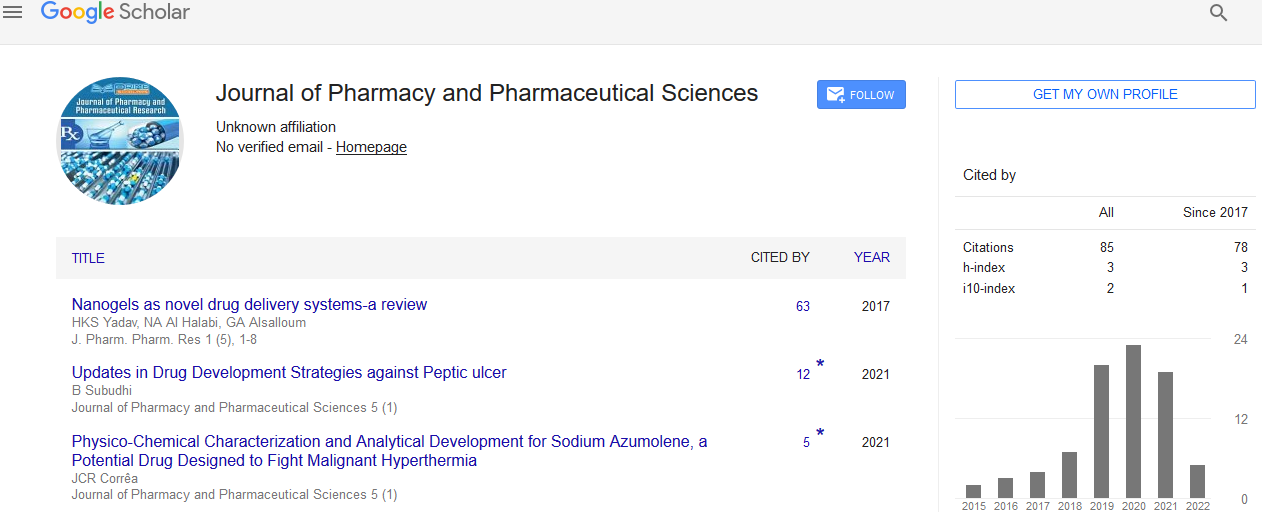Opinion - (2023) Volume 7, Issue 4
Nature's Embrace: Herbal Medicine for Insomnia
Nur Ames*
Department of Pharmaceutics, University of Melbourne, Australia
*Correspondence:
Nur Ames,
Department of Pharmaceutics, University of Melbourne,
Australia,
Email:
Received: 29-Nov-2023, Manuscript No. IPIPR-24-18828 ;
Editor assigned: 01-Dec-2023, Pre QC No. IPIPR-24-18828 (PQ);
Reviewed: 15-Dec-2023, QC No. IPIPR-24-18828 ;
Revised: 20-Dec-2023, Manuscript No. IPIPR-24-18828 (R);
Published:
27-Dec-2023, DOI: 10.21767/ipipr.7.04.036
Introduction
In a world dominated by the rush of modern life, the prevalence of
insomnia has become a pervasive concern. While pharmaceutical
interventions exist, an increasing number of individuals are
turning to herbal medicine as a natural and holistic approach
to address sleep disturbances. This article explores the realm of
herbal remedies for insomnia, shedding light on the potential
benefits, popular herbs, and the evolving landscape of integrative
sleep solutions. Insomnia, characterized by difficulty falling
asleep, staying asleep, or experiencing restorative sleep, can have
profound effects on overall well-being. Lifestyle factors, stress,
and underlying health conditions often contribute to this sleep
disorder. Herbal medicine, with its rich history in traditional healing
practices, offers a gentle and alternative approach to promote
restful sleep. Valerian root has been used for centuries as a natural
sedative and anxiolytic. It is believed to enhance the production
of gamma-aminobutyric acid, a neurotransmitter that promotes
relaxation and regulates sleep. Valerian supplements, commonly
available in capsule or tea form, are often recommended for mild
to moderate insomnia.
Description
Chamomile, known for its calming properties, has been a popular
herbal remedy for sleep-related issues. Its mild sedative effects are
attributed to compounds like apigenin, which interact with GABA
receptors in the brain. Chamomile tea is a soothing and widely
accessible option for those seeking a bedtime ritual to promote
relaxation. Herbal medicine, has less adverse effects compared to
any other form of medicine for treating insomnia.
Passionflower has a history of use in traditional medicine for its
calming effects. Research suggests that it may enhance GABA
activity, leading to a reduction in anxiety and improved sleep
quality. Passionflower supplements or teas are commonly used
to alleviate insomnia symptoms. Lavender, Known for its pleasant
aroma, lavender is renowned for its calming and stress-relieving
properties. Aromatherapy using lavender essential oil, either
through diffusers or added to a warm bath, is believed to promote
relaxation and improve sleep quality. Lemon balm, a member of
the mint family, is recognized for its calming effects on the nervous
system. It may help reduce anxiety and promote better sleep.
Lemon balm tea or supplements are commonly used to address
insomnia symptoms. Herbal medicine is often embraced within
a holistic framework that encompasses lifestyle modifications
to support better sleep hygiene. Integrative practices such as
mindfulness meditation, yoga, and maintaining a consistent sleep
schedule complement the use of herbal remedies, offering a
comprehensive approach to insomnia management.
Conclusion
While traditional wisdom and anecdotal evidence support
the efficacy of herbal remedies, scientific research on their
effectiveness in treating insomnia is ongoing. It is essential for
individuals to approach herbal medicine with caution, considering
potential interactions with medications and consulting healthcare
professionals before incorporating these remedies into their
routine. The allure of herbal medicine for insomnia lies in its roots
deeply intertwined with centuries of traditional healing practices.
While scientific validation continues to expand our understanding
of these remedies, the holistic nature of herbal approaches aligns
with the broader shift toward integrative and patient-centered
healthcare. As individuals seek natural alternatives to address
sleep disturbances, the gentle embrace of herbal remedies offers
a promising path toward restful nights and improved overall wellbeing.
Citation: Ames N (2023) Nature's Embrace: Herbal Medicine for Insomnia. J Pharm Pharm Res. 7:036.
Copyright: © 2023 Ames N. This is an open-access article distributed under the terms of the Creative Commons Attribution License, which permits unrestricted use, distribution, and reproduction in any medium, provided the original author and source are credited.

